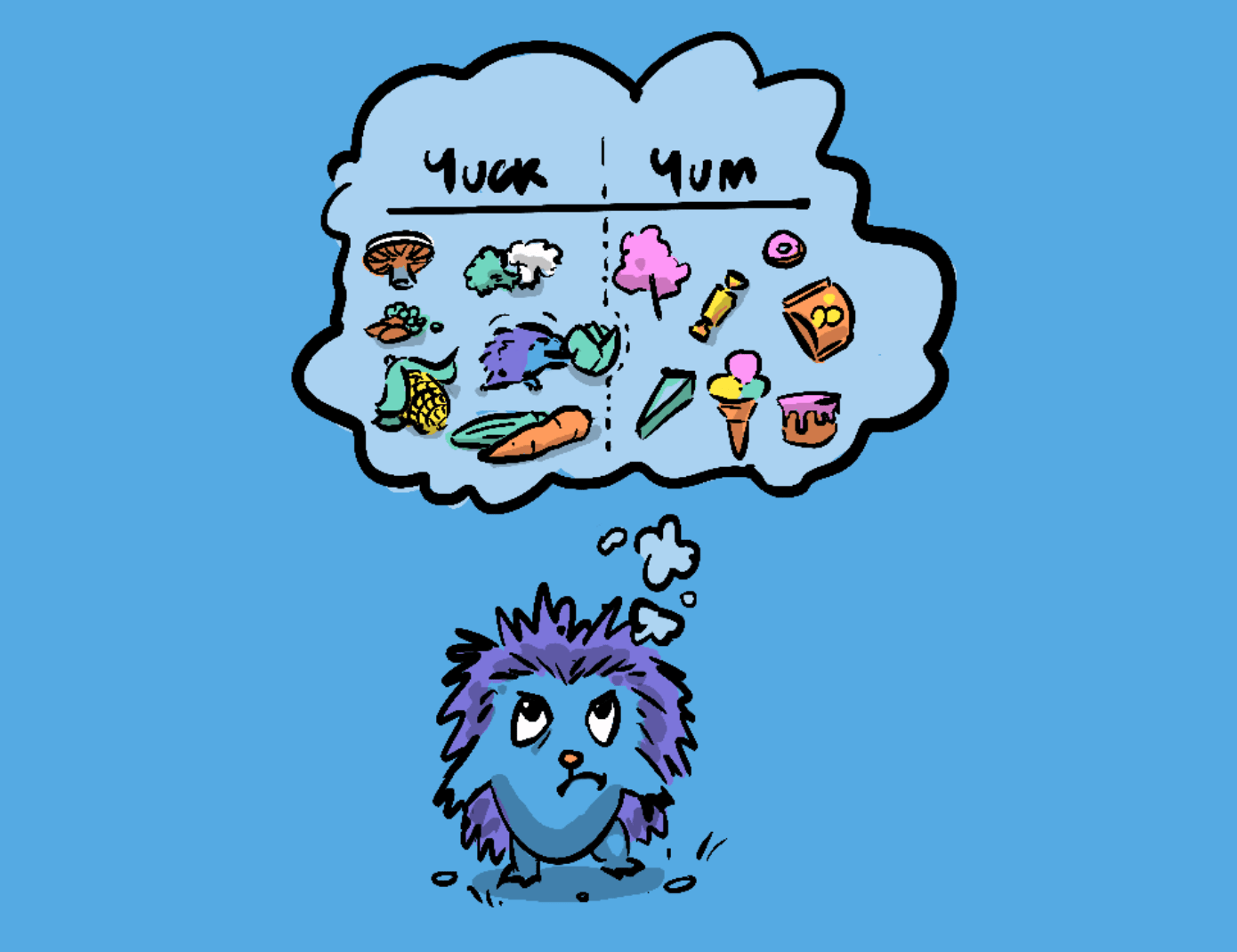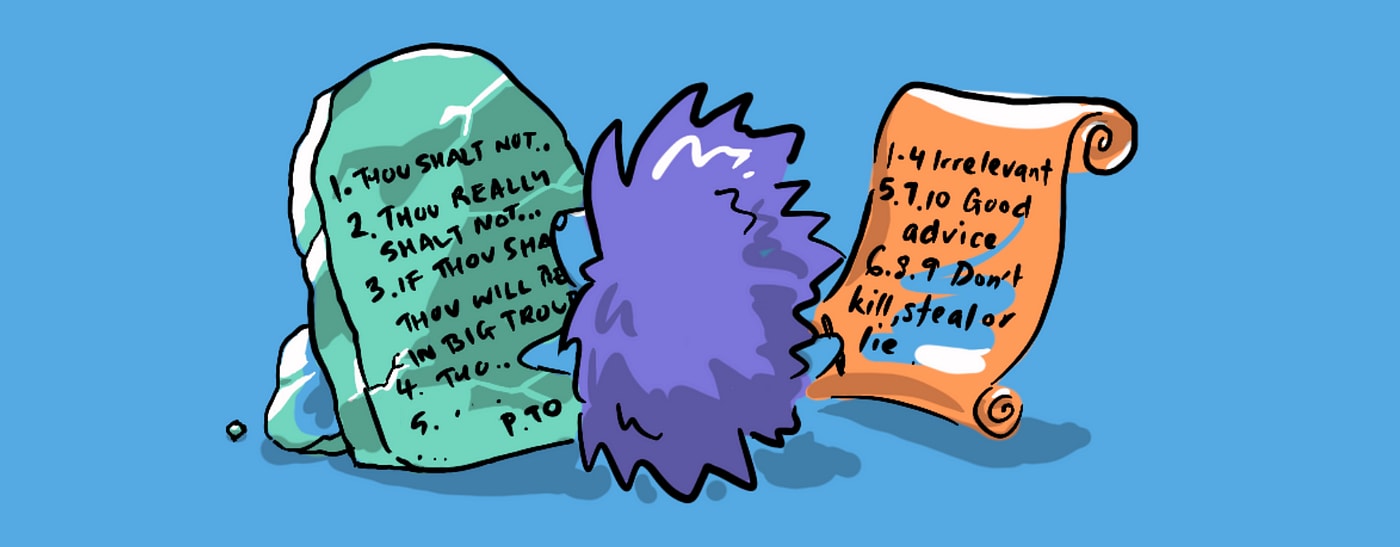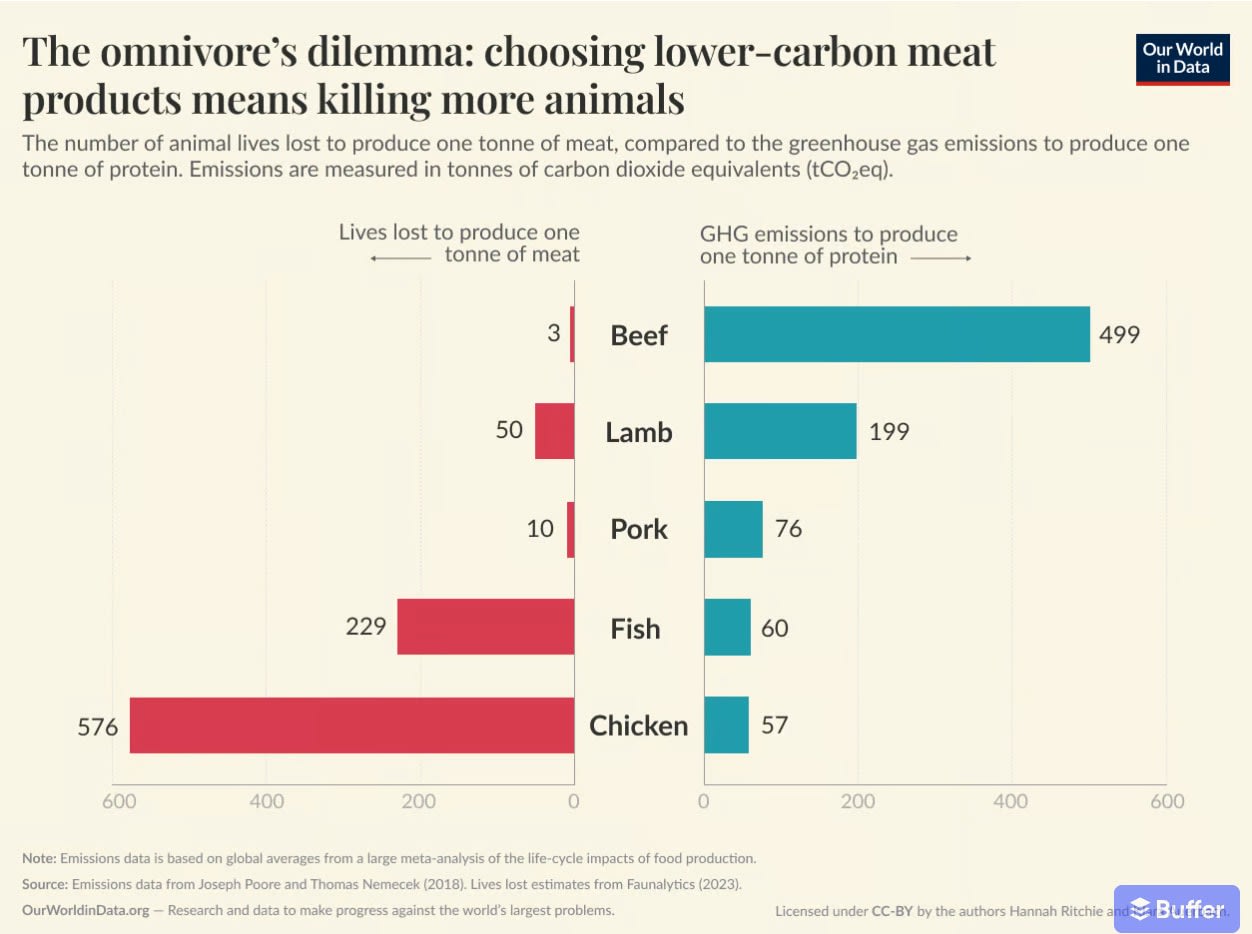
A short one, just to clarify a term (I invented) that gets thrown around here a bit. It concerns the question of how people with different moral views can find common ground underpinning all moral positions, without referring to a shared supernatural belief system, so that understanding can be reached.
“… when we think about what matters, what matters is consciousness and its contents. Consciousness is everything.” — Sam Harris
The Unit of Value
When dealing with matters of morality, we are dealing with the realm of subjective experience, whether you want to call it consciousness, or sentience, it is the unit of value we are measuring in any moral calculus. Many take this to mean that moral value is an invention of humanity, that we make it up, so to speak, which gives the impression that it is ultimately arbitrary.
“… let us see that the distinction of vice and virtue is not founded merely on the relations of objects, nor is perceived by reason.” — David Hume
However, I would argue that this is not the case, and that we can draw objective conclusions concerning the inter-subjective relationships between moral agents. This is because evolution has produced, in us, subjective facts which are bound to our biology (physical reality).
Pleasure & Pain
Our evolutionary hardwiring is not easily untangled, it is embedded in myriad mechanisms, drivers, inhibitors and behaviour modifiers. But at the core is sensation and its poles pleasure and pain. Pain tells us to avoid the behaviour, pleasure to seek it. Pain is inherently “bad” and pleasure inherently “good” — moral properties. These experiences are inescapably value-laden. They are nature’s way of creating a “should” from a fact of biology — overcoming Hume’s Guillotine of “No ‘ought’ from ‘is’”. They are the intersection of the dimensions of physical and moral. I would posit that all our values are derived from the spectrum of these inescapably value-laden experiences.
Inter-Subjectivity & Objectivity
Given that experiences are inescapably value-laden, it is therefore possible to objectively deduce principles for inter-subjective relations (moral principles) that reliably serve the interests of moral agents who want to avoid suffering.
Some Objections (and one-line replies)
- Some forms of pain are pleasurable: In this case they no longer qualify as suffering.
- Sometimes inflicting pain is warranted, like when a personal trainer pushes their client: This is merely a trade-off as part of a more complicated pursuit of pleasure (the pleasure of future achievement).
- Because morality concerns subjectivity, we cannot, by definition, make objective statements about it: This is mistaking the content of the deductive process for the deductive process itself; it is possible to make objective conclusions about subjective content.
- There is no dictate that says well-being is the desired outcome of morality: This is merely a question of definitions, essentially a semantic argument or word-game.
- We have no responsibility to adhere to such rules: This is correct, no one is forced to act morally. But committing to acting morally gives us access to all the non-zero-sum benefits of cooperation.
So…
This inescapable relationship between the quality of experience and the moral values of good and bad, make morality rationalisable, and mean that we can argue meaningfully towards objectively better moral frameworks. I expand on this idea in It’s Subjective.
This post has generated a large discussion over at the blog, I invite you to have your say.
Notes
- Out of curiosity I asked ChatGPT what this term would be, were it one of those long German terms that combines a bunch of words for the sake of creating an esoteric philosophical vocabulary (à la Heidegger), it came up with 'Unentrinnbarewertbeladeneerfahrung' which I think is about right.
- Hume's Guillotine comes from a passage where he's actually criticising the religious origins of ethics, claiming that religious moral positions are assumed rather than derived from anything real. His objection appears to be that this is not acknowledged. The account I have given here is to attempt to derive morality from facts about our biology, and not assume them based something arbitrary.




Hi Nathan,
Thanks for your comment. I think you're conflating "experience" with "response", I'm speaking specifically about the experience. My daughter, for instance, gets immunotherapy every month, 3 injections, her response to her experience of these injections is pretty chill, and no doubt her actual pain tolerance has increased in a more mechanical way than just her learned behaviour, but she still experiences pain, she is always a little nervous how much each will hurt—she doesn't get to choose in advance the goodness or badness of the experience, it's a matter of luck (she can of course choose, or train herself not to react in a way that makes the experience worse, by not tensing her muscle or flinching).
On the other hand, paying attention to a click of the fingers involves no inescapable pain or pleasure, so your sense that it has no inherent moral quality is consistent with my position. The only moral value I can see is if that you've potentially stopped the person doing what they would have preferred to continue doing (perhaps concentrating on book or a video game, or sleeping) which might inescapably bring them some small amount of suffering—their reaction is in part up to them (in part automatic) and is only morally relevant in that it might indicate whether you caused them suffering or not.
The same conflation between "experience" and "response" might apply your claim about hedonism. I also see hedonism as a response to the world, a behaviour connoting the short-term, selfish, simplistic pursuit of pleasure. For instance, given this conversation and our previous conversations, a pursuit of pleasure might lead me to avoid this conversation (jk), but actually that would be entirely unsatisfying and feel like an unfinished project. I also think in the long run, I believe that nailing down a moral foundation that is transferrable between humans of different backgrounds is worthwhile pursuit, which, if successful, will help spread greater well-being (in terms derivable from IVLEs). Addressing questions about my position helps me understand it better and equips me for conversations in the future, making the time spent on this response valuable to me. I happen to be a person with plenty of pleasure and happiness in my life, I get greater pleasure now by helping others and thinking about ways to help understand and spread understanding about human nature (that's why I'm an EA and on this forum). I might, had I not seen the connection to long term pleasure, say I was simply seeking "truth" or "kindness" or "harmony" but my moral values that drive me to these "higher" goods are all derivable from my understanding of my own inescapably value-laden experiences and those of others. And btw, I don't see their reducibility as diminishing in any way, in fact I see this as strengthening, in the same way that scientifically reducing a phenomenon makes it more understandable, more real, rather than stealing the magic away.
The reason I challenged you to look at a moral value you and I might agree on (you can assume I hold pretty standard moral views, I don't need to provide a list) and see if you can derive this from IVLEs, is because I see people, invariably taking moral positions that appear to implicitly assume my foundational position. I'm suggesting that making this implicit assumption explicit would make communication and agreement about moral issues clearer and more tractable, which could have profound implications for our ability to cooperate and live in peace. I believe if you try this challenge, you'll find yourself quite capable of deriving moral values from IVLEs.
Thanks again for your comment, I appreciate your input. By challenging you I'm not meaning to be a pain. In my experience, people can often only fully get a view once they've genuinely tried it on. You might still disagree, and that's fine, I'm just asking you to try it on.